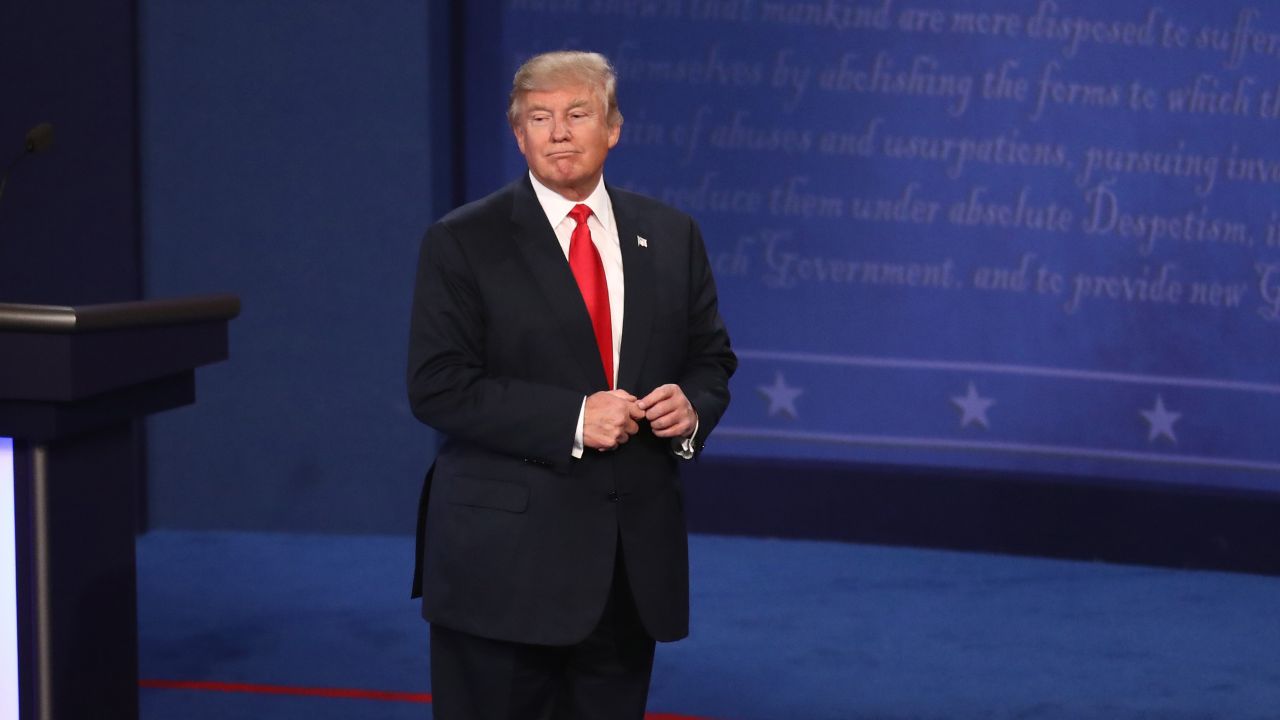
Donald Trump, 2016 Republican presidential nominee, stands on stage after the third US presidential debate in Las Vegas, Nevada on Wednesday, Oct. 19, 2016. (Photographer: Andrew Harrer/Bloomberg via Getty Images
Voters now have a clear sense of what our two candidates stand for, and the Republican candidate is unlike any that we have seen before.
Donald Trump is certainly not a Republican of the Dwight Eisenhower variety: Can you imagine President Eisenhower refusing to criticize Vladimir Putin for blatant espionage and attempts to affect the election? Eisenhower Republicans also care a great deal about fiscal prudence, whereas Donald Trump’s fiscal plan will greatly increase the budget deficit and the national debt.
On fiscal matters, Trump is very close to what has been the House Republican mainstream since Newt Gingrich was speaker in the mid-1990s. In this view, we should “starve the beast” of federal government by cutting taxes, running up the deficit and facilitating crises. This is exactly what George W. Bush did — and the negative consequences are all around you. (James Kwak and I called our book on American fiscal history and economics White House Burning with exactly this point in mind.)
And Trump is very close to where George W. Bush was on financial regulation in the very specific and meaningful sense that Trump is opposed to constraining the actions of large, powerful banks and other potentially dangerous financial firms. Bush-style deregulation brought us the financial crisis of 2008, which had a massive negative impact on our economy and the world. Trump, again agreeing with the House Republican leadership, would like to repeal the Dodd-Frank financial reforms of 2010 and return to Bush’s pre-crisis and pro-crisis policies.
Trump differs from recent Republican policy thinking on one major issue: trade. Trump wants to confront China, Mexico and other countries, threatening to impose tariffs and to find other ways to close off our economy from imports. The best assessment of his proposals is by the Peterson Institute for International Economics, which found that they would cause at least a major recession, with millions of jobs lost. (I am a part-time senior fellow at the Peterson Institute, but I was not involved in this work.)
But last night, the third presidential debate contained perhaps the most remarkable moment of an extraordinary presidential campaign — one that highlighted how much of an anomaly Trump truly is, both within his party and in American politics generally. Despite repeated opportunities provided by the moderator, Trump refused to say that he would accept the result of the general election on Nov. 8.
I cannot think of any other Republican, ever, who would have shown such disrespect for the Constitution.




